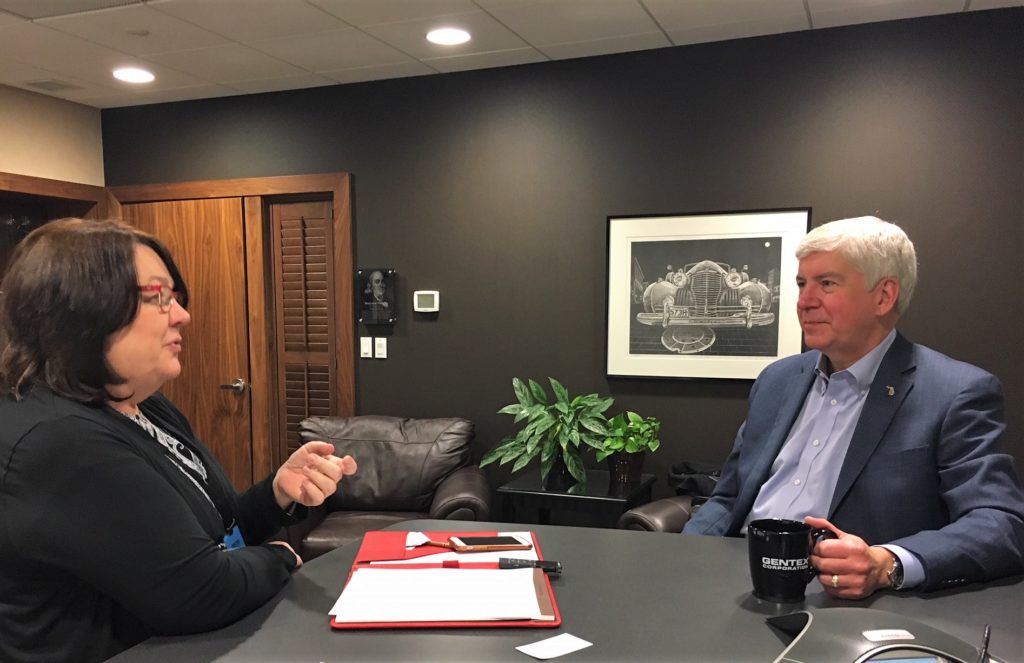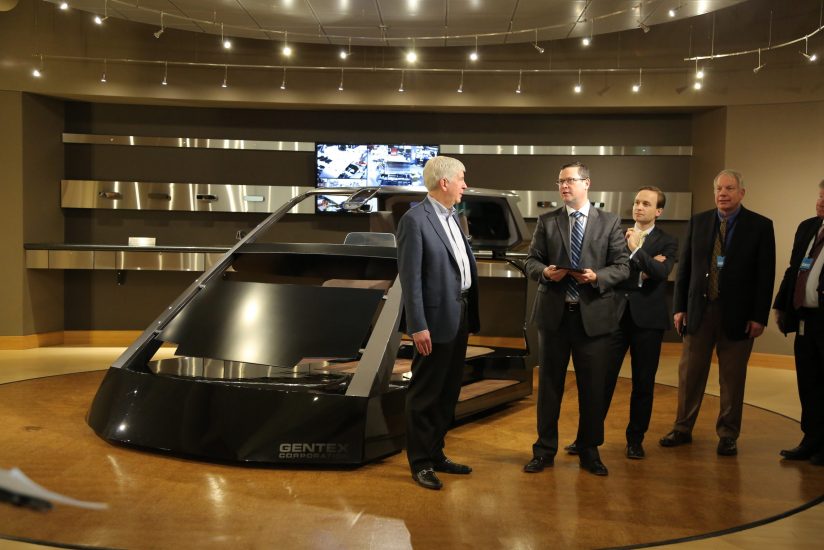New numbers just released by the Bureau of Labor Statistics show that from January 2017 to January of this year, 16 states have lowered their unemployment rates and 21 states have added jobs. Among the states making significant gains in putting people back to work is Michigan, which added 45,000 nonfarm jobs over the 12-month period. The jobless rate, at 5 percent, is above the national average of 4.1 percent, but the state’s rebound from the Great Recession has been impressive.
Consider what Michigan has dealt with since the state’s prosperous economic times came to a halt. Even before the recession started at the end of 2007, the state was already in an unprecedented downward spiral as the American auto manufacturing industry fell into crisis. While the United States, as a whole, gained nearly eight million jobs from 2003 to 2007, Michigan was the only state with a net loss — 148,000 jobs in those four years. By the end of the decade, Michigan had lost 805,900 jobs — one in six workers or 17.2 percent of its workforce. Unemployment was close to 14 percent.
The Future of Work Is About Change
Since hitting a low in 3.8 million people employed in July of 2009, Michigan has gained 600,000 jobs. One in three have been in manufacturing, but just a fraction of those have returned in the auto industry. Jobs have diversified. And, according to the state’s economic development team, there will be another 811,000 new high-skill job openings in Michigan between now and 2024, with opportunities in IT, computer science, healthcare, finance, professional trades and advanced manufacturing,
“The world has changed, but I don’t think a lot of the world has realized this yet. It’s very exciting. We will have serious challenges, but it’s about how we can help lead that transition.” According to Michigan Governor Rick Snyder, the talent shortage across multiple industries is the single greatest threat to the state’s continued economic recovery.
To best-prepare Michiganders for those jobs, the governor has proposed what he calls the “Marshall Plan for Talent,” a $100 million, five-year investment in changing the way the state develops its pipeline of skilled workers. During a recent visit to the cutting-edge Gentex electronics manufacturing plant in Zeeland, Michigan, I had a chance to sit down with Gov. Snyder to discuss his proposal which calls for the creation of more than 150 competency-based education programs.

“The demand for skilled workers is huge. Our proposal is focusing on these fields that we can show, with great research, that they are high-demand, high-paying fields. Our existing system is not geared to turn out enough people to fill those jobs,” said Snyder. “That’s a travesty, in some ways.”
“The traditional model that we’ve had for the education of the silos — the K-12 silo, the higher-ed silo, and I would even say there is an employer silo after that — doesn’t work anymore, if you look at where we need to head in the future.” Gov. Snyder said he believes there needs to be a mindset shift from thinking that you learn everything you can by age 22, then you go to work.
“I call it PLL, prenatal to lifelong learning. I tell people that they should expect to go through two major retrainings during their working lives because of the velocity of change in our world. Instead of thinking about people just getting a degree — and there are wonderful reasons to get a degree, and I am not anti-degree — we need to design a more thoughtful system focused on the accumulation of competency-based certificates over your lifetime.”
RELATED STORY: Credential Engine brings the postsecondary credential world into focus
Gov. Snyder acknowledged that it will be a challenge to get people to start thinking differently and compared it to the adoption-curve for new technology.
“You have early-adopters, fast-followers, while most of the people are in the middle just watching with some people lagging behind,” the governor told me.
He said the results will eventually speak for themselves.
“It is not about flipping a switch and everything changes. You just start the programs that are these change agents and then have, particularly, young people go through these certificate-based programs and get well-paying jobs, and people will go ‘wow, we need to do more of that,’ and it will organically grow from there.”
The Marshall Plan for Talent is a proposal that would need approval from the state legislature to move forward. Gov. Snyder described it as a “huge pilot program” that would immediately skill 55,000 young people and get them jobs in high-demand, high-paying jobs.
“You have that many people succeeding over a relatively short period is going to cause a big wake-up call.”
The key to making the proposal work would be increasing the number of public-private partnerships, including apprenticeships with local businesses, such as the one offered by Gentex.
“Businesses want to be our partners because they have the demand. They are excited about the opportunity to solve a big problem that they have. A number of places are already doing these kinds of programs, so it’s not brand new. We have some great apprenticeships already, and some great certificate programs. We need to scale them up.”
Gov. Snyder told me he believes how we educate young and old people must and will change.
“It will be less lecture-based. We do it for our youngest and our oldest. We do it in Montessori for our young kids and we do it for our graduate students, where we make it more experiential, more involved in the process, where you still have a great coach helping you.”
Half of the proposed $100 million would go to courses, curriculum, equipment and the expansion of some of the already-existing programs. $25 million is earmarked for scholarships, according to Gov. Snyder.
“We want to help economically-disadvantaged people to have the opportunity to participate in these programs, by providing some resources there.”
Another $25 million would be used for marketing of career opportunities to young people.
“Many of our school counselors today are college counselors who spend much of their time explaining to a student how you can apply to college to go get a degree. We need more people involved in the process to talk about, whether you get a degree or not, what does your career look like, or what are your opportunities to have a career.”
The governor would like the money to be used to help refocus those counselors on the broader opportunities for young people and bring in people, maybe retirees, with real-world experiences to share their knowledge.
“When you talk about creating new courses, we’re going to make it a competitive environment. People will have to apply for the grants to do this. It’s not going to be just a K-12 or community college. We’re going to tell them you need to bring private parties with you too. Employers need to collaborate with K-12 and higher ed. We need to break down those silo walls,” said Snyder.
Eventually, according to the governor, the state would look at the programs created to find common features — common skills needed in each field — to help create portable certifications.
“Businesses will be looking for specific skills so that someone could walk right in and go to work. So, there will always be a balance between how do you get some standardization and local needs. But part of it we hope to create certificates that people can use from job to job, and that someone could recognize 20 years later and say you achieved this and we know what this means.”
Governor Snyder said the proposal is about helping individuals transform and help them find meaningful work, and is also about keeping the economy growing.
“There is a mismatch between supply and demand. Our traditional system is not geared to solving this problem and we need to think a different way. This is a national issue, it isn’t just about Michigan. I want Michigan to lead the way.”
The State of Work series for WorkingNation from Executive Producer and Senior Business Correspondent Ramona Schindelheim gives a first-hand look at the workforce development programs happening at the state level.
Join the Conversation: Share your thoughts on this State of Work article on our Facebook page.
Connect with Ramona via Twitter or her website. You can read her previous articles for WorkingNation at this link.











